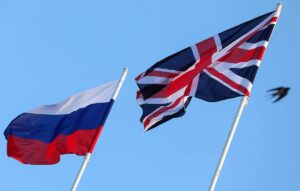
On Friday, the UK announced its decision to expand sanctions against Russia in the field of IT technologies, audit services, and engineering.
The government’s message notes that, in particular, in the IT sector, consulting services for the Russian Federation will now be prohibited. It is also prohibited “to provide legal services for transactions in a number of commercial areas.” Restrictive measures apply to the advertising sector, auditing.
“The UK also bans the export to Russia of approximately 700 items of goods that are important for Russian industry and technology development,” the statement said.
It also notes that the British authorities have decided to summon Russian Ambassador to London Andrey Kelin to the British Foreign Office.
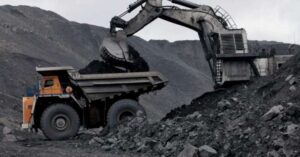
Swiss authorities are imposing a ban on coal imports from Russia following a similar decision by the European Union, the Swiss Federal Council said in a statement.
“The new measures include far-reaching sanctions on goods, including a ban on imports of lignite and coal as well as on goods that are important sources of revenue for Russia (e.g. timber, cement, seafood, caviar),” the statement said.
“In addition, there are export bans on goods that can help strengthen Russia’s industrial capacities (e.g. industrial robots or certain chemical products),” the document said.
BANS, COAL, IMPORTS, RUSSIA, SWITZERLAND
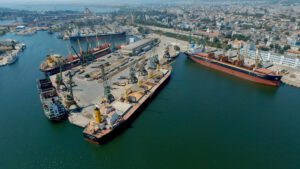
As part of EU sanctions, the Bulgarian authorities imposed a ban on entry into their ports for ships from Russia, the Associated Press (AP) reported on Sunday.
“All ships flying the Russian flag, as well as ships that changed the Russian flag or registration to any other state after February 24, are denied access to the sea and river ports of Bulgaria,” AP quotes excerpts from a statement by the Bulgarian Maritime Administration.
AP specifies that the Bulgarian authorities will make an exception for ships in distress or in need of humanitarian assistance, as well as ships carrying energy, food and medicine to the EU.
On the eve it became known about a similar order of the Italian authorities. At the same time, Russian cargo ships, which are currently in Italy, were ordered by the authorities to go to sea as soon as they complete their current operations.
Earlier in April, the EU introduced another package of sanctions against the Russian Federation, ordering, in particular, to close ports for ships from Russia. At the same time, exceptions are provided for the transportation of a number of goods, for example, energy carriers, agricultural products.
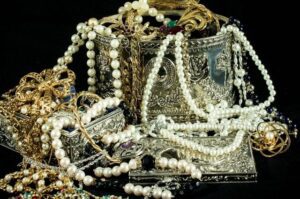
The UK denies Russia and Belarus access to Most Favored Nation tariff for hundreds of their exports, imposes a 35% import duty on a number of Russian goods, including vodka, and, same as the European Union, bans exports of luxury goods to Russia, the British government said in a statement on Tuesday.
“The UK denies Russia and Belarus access to Most Favored Nation tariff for hundreds of their exports, depriving both nations key benefits of WTO membership,” the statement said.
Same as the EU, London bans “exports of luxury goods to Russia alongside its G7 allies,” the statement said. The ban applies to vehicles, clothes and art.
The British government also “published an initial list of goods worth GBP 900 million – including vodka – which will now face an additional 35 percent tariff, on top of current tariffs,” the statement said.
BANS, EXPORT, LUXURY GOODS, RUSSIA, UK
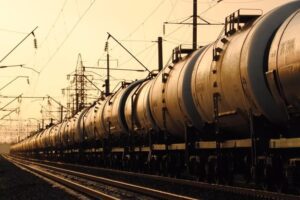
The European Union has officially published its list of sectoral sanctions against Belarus.
In line with the decision of the EU Council, which was published in the EU’s official journal, the ban on import or transit from Belarus of highly significant export goods for the country, petroleum products and potash fertilizers, applies to contracts signed after June 25, 2021. The EU sanctions thus do not apply to current contracts for supplies of petroleum products and potash fertilizers.
“It shall be prohibited […] to transport petroleum products if they originate in Belarus, or are being exported from Belarus to any other country; to provide, directly or indirectly, technical assistance, brokering services, financing or financial assistance, including financial derivatives, as well as insurance and re-insurance […]. The prohibitions […] shall be without prejudice to the execution of contracts concluded before June 25, 2021, or ancillary contracts necessary for the execution of such contracts,” the document said.
Similar sanctions are envisaged for potash fertilizers from Belarus. “It shall be prohibited to import, purchase or transfer, directly or indirectly, potassium chloride (‘potash’) products […] from Belarus, whether or not originating in Belarus. The prohibitions […] shall be without prejudice to the execution of contracts concluded before June 25, 2021, or ancillary contracts necessary for the execution of such contracts,” it said.
BANS, BELARUS, EUROPEAN UNION, IMPORT, OIL PRODUCTS, TRANSIT
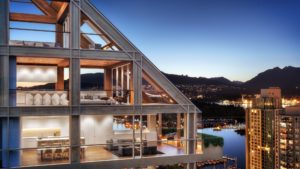
The updated state construction standards, which ban to arrange hotels, hostels and shops with a total area over 1,000 square meters in the new housing complexes, will come into force from January 1, 2020, a press service of Deputy Minister of Regional Development, Construction, Housing and Utilities Lev Partskhaladze has said.
According to a report, new state construction standards also ban to arrange in the housing complex specialized establishments and enterprises, operation of which can cause air or territory pollution; specialized stores of construction materials, lubricants and other goods (for example, paints, varnishes, flammable substances and materials); workshops for the repair of shoes and household appliances and appliances with an area of over 100 square meters: baths, saunas, production facilities, funeral homes and others.
At the same time, the document permits designing on any floors of the housing complex built-in and built-in attached public premises: shops, cafes, beauty salons, bank branches, etc. Previously, this was permitted only up to the third floor inclusively.
The norm applies exclusively to new construction of the residential buildings. In addition, a mandatory requirement for the placement of such a built-in institution is placing it in a separate fire compartment.
The exception is objects that negatively affect a person in terms of noise, vibration, electromagnetic radiation and radiation. For example, a cafe with a round-the-clock mode of operation, increased noise levels and so on.
BANS, CONSTRUCTION MINISTRY, HOSTELS, HOUSING COMPLEXES, SHOPS, SQUARE METERS